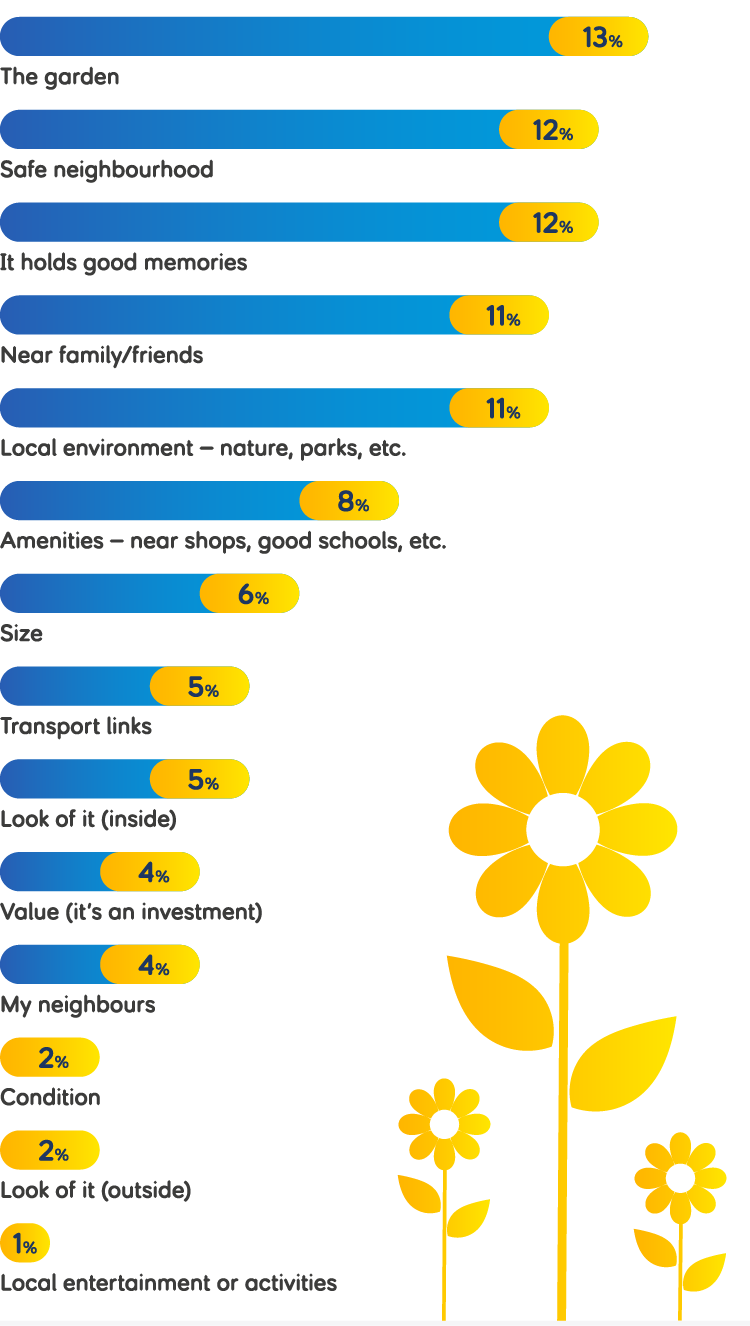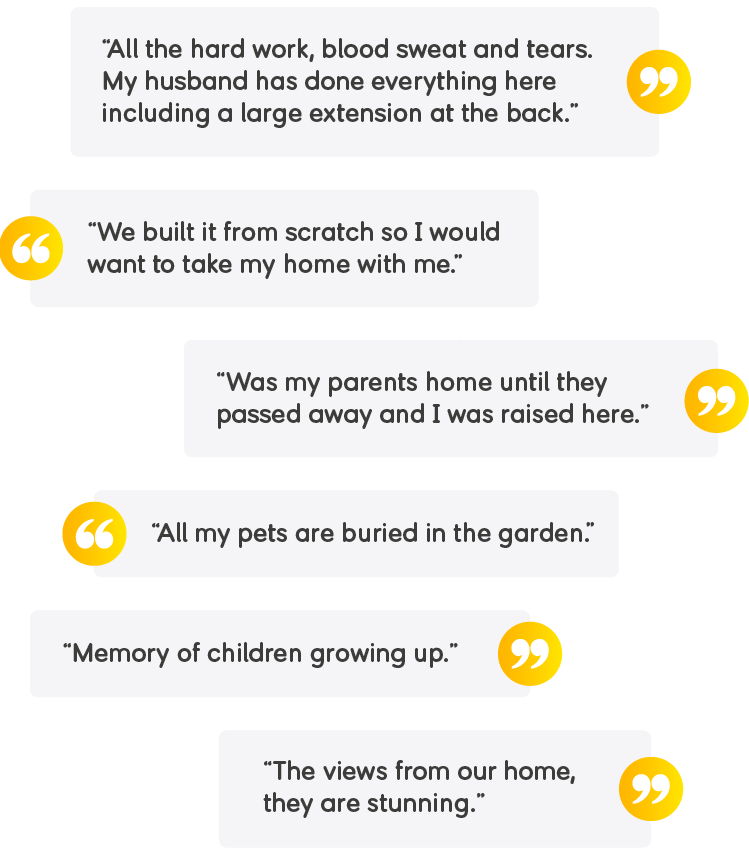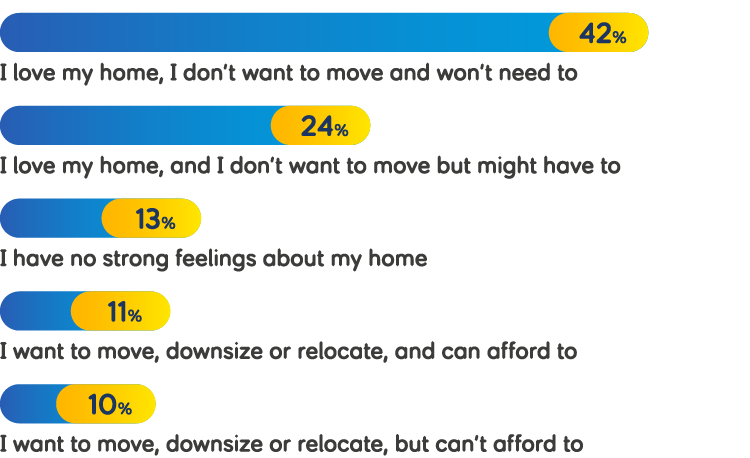Happiness and the home
Part of the Life Well Spent Report 2024
Our house is our haven – but what matters most to the over 50s when it comes to matters of the home?

How much are over 50s' homes worth?
It won’t come as a shock to many that most houses prices in the UK have risen an awful lot in the last few decades.
In fact, on average this year’s respondents say the value of their home has gone up 124% – from £148,948 to £334,106. That’s over a period of 22 years, which is the average length of time they’ve lived in their current home.
However, it’s worth noting that people seem to be undervaluing their homes. For example, if our respondents bought their house for £148,948 in 2002 and its value increased in line with the national average, it would in fact be worth £381,379 today.
A quarter (24%) of respondents have lived in their homes for over 30 years. And a third purchased their properties for less than £60,000.
The happiest over 50s are slightly (3%) more likely to live in their homes for more than 30 years.
What do over 50s love most about their home?
This year, we asked respondents what their favourite things about their homes are. And it turns out the monetary value of our property isn’t what matters most to people over 50.
Instead, 13% say their garden is their most treasured part of the home. 12% say it’s the safe neighbourhood, and 12% again say it’s the good memories that the house holds.
Following closely at 11% is being close to family and friends, plus the local environment, such as parks and nature spots.
Only 4% of over 50s said the value of their house was their favourite thing about it.
What do you love most about your home?

The data is as follows:
- The garden. 13%.
- Safe neighbourhood. 12%.
- It holds good memories. 12%.
- Near family/friends. 11%.
- Local environment – nature, parks, etc. 11%.
- Amenities – near shops, good schools, etc. 8%.
- Size. 6%.
- Transport links. 5%.
- Look of it (inside). 5%.
- Value (it's an investment). 4%.
- My neighbours. 4%.
- Condition. 2%.
- Look of it (outside). 2%.
- Local environment or activities. 1%.
What's uniquely sentimental about your home?
We also asked if there was anything uniquely sentimental about their homes – something that means the world to them, but that would be lost if they had to move house.
33% said yes (38% of women and 29% of men), with common examples being shared memories, a home that they (or their loved ones) built, and beloved pets being buried in the garden.
The Welsh are by far the most sentimental nation when it comes to our homes (44%), with the least being the Scots (29%).
What sentimental things about your home mean you wouldn't have to move?

"All the hard work, blood sweat and tears. My husband has done everything here including a large extension at the back." "We built it from scratch so I would want to take my home with me." "Was my parents home until they passed away and I was raised here." "All my pets are buried in the garden." "Memory of children growing up." "The views from our home, they are stunning."
Would over 50s prefer to stay in their home, or move?
68% of over 50s say they love their home, with 42% saying they don’t want to – or need to – move house. This rises to 58% for the happiest over 50s.
10% do want to move, downsize or relocate, but they can’t afford to. This drops to just 3% for the happiest over 50s, and rises to 1 in 5 (21%) for the unhappiest.
And 1 in 4 over 50s (24%) say they may have to move even though they don’t want to. For some home owners, equity release could be a way to stay in their own home.
How do you feel about your home?

The data is as follows:
- I love my home, I don't want to move and won't need to. 42%.
- I love my home, and I don't want to move but might have to. 24%.
- I have no strong feelings about my home. 13%.
- I want to move, downsize or relocate, and can afford to. 11%.
- I want to move, downsize or relocate, but can't afford to. 10%.
This article forms part of our Life Well Spent report, which looks at the relationship between happiness and big purchases in later life. You can read the other sections of the report below or download the full report (PDF).
